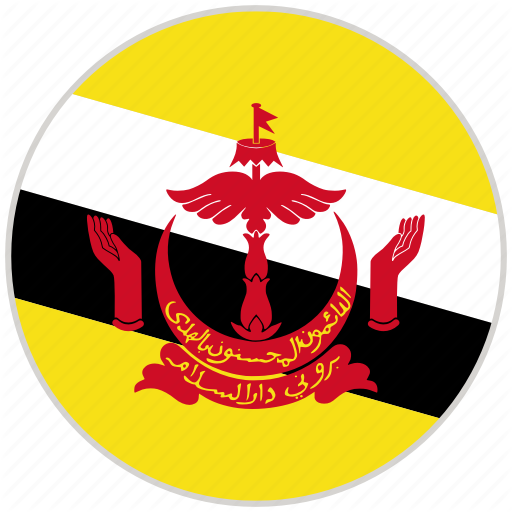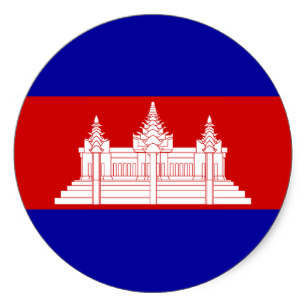Working Group Report on Enhancement of Cultural Exchange in East Asia
Introduction
East Asia is composed of diverse cultures, traditions and nations. Peace and prosperity of East Asian Community, therefore, is contingent on understanding of cultural diversity and common vision for community as well as the coordination of political economic interests within the region. Countries in East Asia have increasingly identified the importance and necessity of cultural exchange in the process of building East Asian Community. Towards a humanistic regional community, this working group has dealt with general issues of cultural exchange and explored various ways to enhance cultural exchange in East Asia.
This working group appreciates the spirit of 1998 ASEAN Plus Three Summit meeting that made a statement on Asian identity, human exchanges, mutual cultural understanding, and so on. Following the spirit, NEAT recognized the importance of building East Asian socio-cultural community in 2004 annual conference and the necessity of building East Asian identity in 2005 annual conference. To implement the recognition, 2006 NEAT annual conference proposed a working group that would discuss the issue of ‘enhancement of cultural exchange in East Asia.’
The first meeting of the NEAT “Working Group on Enhancement of Cultural Exchange” was held on June 8, 2007 in Jeonju, Jeollabuk-do Province in the Republic of Korea. It was sponsored by the Korean Institute of Southeast Asian Studies (KISEAS), the Country Coordinator of NEAT Korea. A total of 18 participants from all 13 ASEAN Plus Three (APT) countries attended the meeting and engaged in an interactive and productive discussion.
As a result, the 2007 NEAT Working Group on Enhancement of Cultural Exchange in East Asia reached an agreement to hold a series of annual meetings for the next 5 years. Each year is supposed to focus on one priority area: the Media (2008); Popular culture and cultural festivities (2009); Education (2010); People-to-people exchange (2011); and Performing arts and cultural exhibition (2012).
In accordance with the agreed schedule, the second meeting of NEAT “Working Group on Enhancement of Cultural Exchange” was held on June 13-15, 2008 in Seoul, the Republic of Korea, with “media” for its priority area of discussion. It was sponsored by the KISEAS (the Country Coordinator of NEAT Korea), and the Ministry of Foreign Affairs and Trade (MOFAT) of the Republic of Korea. A total of 18 participants from 12 ASEAN Plus Three (APT) countries (a delegate from Brunei was absent) attended the meeting and engaged in an interactive and productive discussion.
In accordance with the agreed schedule, this year’s priority area of discussion was “popular culture and cultural festivities.” The meeting (the third meeting of the NEAT “Working Group on Enhancement of Cultural Exchange”) was held on May 1-3, 2009 in Seoul, the Republic of Korea. It was sponsored by the KISEAS (the Country Coordinator of NEAT Korea), and the MOFAT of the Republic of Korea. A total of 17 participants from 11 ASEAN Plus Three (APT) countries (delegates from Brunei and Malaysia were absent) attended the meeting and engaged in an interactive and productive discussion. The meeting brought up diverse and important issues and ideas on the popular culture and cultural festivities as follows.
- Identifying the concept and function of the popular culture and cultural festivities in East Asia
- Examination of current cultural exchanges in popular culture and cultural festivities within East Asia
- Exploration of agenda and measures for more cultural exchanges in East Asia
- Policy implications
Key Issues and Suggestions
As a general principle, all the participants in this WG
- Recognized the importance/necessity of “cultural exchange through popular culture and cultural festivities” in East Asian Community (EAC) building process.
- Agreed that “popular culture and cultural festivities” could be an excellent means of promoting ‘regional identity’ among East Asian people.
- Suggested that “cultural exchange/cooperation through popular culture and cultural festivities” should be enhanced in the 2nd decade of APT process.
Some participants pointed out the importance of “popular culture” in mutual understanding in East Asia, emphasizing following viewpoints:
- Popular culture has become a part of our daily lives.
- Popular culture including television drama, film, and music can be less nationalistic than other forms of popular culture.
- The growth of popular culture has expanded collaboration in cultural exchanges.
Some participants expressed the concern of uneven or unidirectional flow of pop culture and addressed the issues such as:
- How to correct the imbalance in the flow of cultures between countries.
- Especially, how to reduce the gap in terms of media development level between developed countries and less developed countries in the region.
- How to respond to the Westernization of cultures with growing domination of market forces in media industries.
- How to help policymakers to realize the importance of popular culture in cultural exchange.
Some participants expressed the concern of traditional culture in the modern era, emphasizing following points:
- Traditional cultures, which are sources of fraternity and national identities, are disappearing, being driven out and under-represented in the modern era and in the process of industrialization.
- Some governments have marginalized traditional culture considering it as retardation of economic development and modernization.
- The marginalization of traditional culture leads to the loss of local identity.
- Traditional festivals are recently being revitalized, however by market-driven forces and local governments.
In addition, participants also addressed various issues in dealing with popular culture and festivities in the region. They are as follows:
- Asian societies share agricultural traditions which have produced diverse festivals.
- Industry-produced pop culture is now an unavoidable phenomenon.
- Cultural hybridity of traditional culture and industry-produced pop culture is the way to reflect long-established identities as well.
- Such hybridized cultural forms have changed long-lasting perceptions like Islamophobia in Western societies.
- It is important to address the existence of subcultures and diasporas.
- The lessons of history can be reflected in the content of popular culture.
- It is necessary to recognize the existence of ethnic cultures in rural areas, subcultures in cities, and diaspora cultures.
- It is necessary to address the role of distributors and new media such as the Internet and satellite TV in transnational cultural exchanges.
Policy Recommendations and Proposals for Specific Measures
Based upon the key issues and suggestions addressed in the meeting, the working group made some policy recommendations and proposals for specific measures and programs as follows.
- Some specific programs were proposed to promote or enhance the mutual understanding of other cultures in the region such as:
- East Asian Cultural Festival
- organizing committee should be drawn from diverse backgrounds and sectors
- to be held biennially and hosted by each Asian Plus Three countries in turn
- including conference on “evolving trends of popular culture in East Asia”
- including film festivals focusing on East Asian films
- including music and dance festival/competition
- televised by public TV stations of APT countries and circulated within the region
- Textbook of East Asian History and Culture
- To promote mutual understanding of common history and culture from the elementary school level to secondary school level
- East Asian Cultural Foundation
- Coordinating and facilitating cooperation in terms of transnational exchange of cultures among cultural practitioners in the region
- Making decisions on issues pertaining to the promotion of cultural exchange and cooperation
- Commissioning projects to showcase the different cultures in East Asia
- Forming “research networks” promoting research on conditions of cultures, and cultural market data and consumers’ needs across East Asia. Thereafter, annual conference on specific cultural aspects will be held
- Some specific measures were proposed to promote “cultural exchange through popular culture” in the region as follows:
- Active engagement in biennales and triennales held in the region so that Asian peoples can understand each other
- Designation of East Asian Cultural Capitals following a cue from European Cultural Capitals, whereby Asian cities take turns to showcase their cultures
- There was a suggestion that it is necessary for governments to render support to practitioners of transnational cultural exchange and to provide human network and material infrastructure for further collaboration in cultural exchange.
ANNEX
Delegates to the Working Group on Enhancement of Cultural Exchange in East Asia
(in alphabetical order by country)
May 1-3, 2009, Seoul, Korea
Cambodia
Mr. Kimhan Meas
Department of Performing Arts, Ministry of Culture and Fine Arts
#224 Presnordom Bolva, Sankat Tonle Bcasac ,
Chammon, Phnom Penh, Cambodia
Tel: +(855) 11-972-993, Fax: +(855) 23-2321-8147
Email: This email address is being protected from spambots. You need JavaScript enabled to view it.
China
Ms. JI Ling
Research Officer, East Asian Studies Center, China Foreign Affairs University
24 Zhanlan Rd. Beijing 100037
Tel/Fax: 86-10-68322939
Email: This email address is being protected from spambots. You need JavaScript enabled to view it.
Indonesia
Ms. Dwi Ardhanariswari Sundrijo
Lecturer, Department of International Relations, Universitas Indonesia
Departemen Hubungan Internasional, Fakultas Ilmu Sosial Ilmu Politik
Gedung B Lantai 2, Kampus Baru Universitas Indonesia,
Depok 16424, Indonesia
Tel: +62-812-8179425, Fax: +62-21-7873744
Email: This email address is being protected from spambots. You need JavaScript enabled to view it.
Japan
Professor Akio KAWATO
* In accordance with professor KAWATO’s personal request, we do not include his contact address
Laos
Ms. Vithaya XAYAVONG
Acting Director of Administration and International Cooperation Division
Institute of Foreign Affairs, Ministry of Foreign Affairs
Sibounheuang Road, Vientiane Lao PDR
Tel: (856-21)252312, Fax: (856-21)252495
Email: This email address is being protected from spambots. You need JavaScript enabled to view it.
Myanmar
Ms. THAN Aye
Assistant Director, Myanmar Institute of Strategic and International Studies
C/O. Ministry of Foreign Affairs,
Pyay Road, Yangon, Myanmar
Tel: 01-228833, Fax: 01-222199
Email: This email address is being protected from spambots. You need JavaScript enabled to view it.
Philippines
Professor Patrick Flores
Dept. of Art Studies, University of the Philippines
20 Fuji St BF Homes Paranaque 1700, Metro Manila, Philippines
Tel: (632)8256732, Fax: (632)9270581
Email: This email address is being protected from spambots. You need JavaScript enabled to view it.
Singapore
Dr. HUI Yew-Foong
Fellow, Institute of Southeast Asian Studies
30 Heng Mui Keng Terrace, Pasir Panjang, Singapore 119614
Tel: +65-6870-4521, Fax: +65-6775-6264
Email: This email address is being protected from spambots. You need JavaScript enabled to view it.
South Korea
Dr. CHAE Suhong
Professor, Dept. of Archaeology & Cultural Anthropology Chonbuk National University
e-mail: This email address is being protected from spambots. You need JavaScript enabled to view it.
Dr. HWANG In-won
Professor, Dept. of Politics, Gyeongsang National University
e-mail: This email address is being protected from spambots. You need JavaScript enabled to view it.
Dr. LEE Jae-hyon
Researcher, Korean Institute of Southeast Asian Studies
e-mail: This email address is being protected from spambots. You need JavaScript enabled to view it.
Dr. SHIM Doobo
Professor, Dept. of Media Communication, Sungshin Women's University
e-mail: This email address is being protected from spambots. You need JavaScript enabled to view it.
Dr. SHIN Yoon-hwan
Professor, Dept. of Political Science, Sogang University
e-mail: This email address is being protected from spambots. You need JavaScript enabled to view it.
Dr. YI Jeong Duk
Director, The Institute of Rice, Life, and Civilization, Chonbuk National University
e-mail: This email address is being protected from spambots. You need JavaScript enabled to view it.
Thailand
Dr. Pandit Chanrochanakit
Lecturer, Faculty of Political Science, Ramkhamhaeng University
Huamak, Bangkapi, Bangkok 10240 THAILAND
Tel: +66 85 9595189, Fax: +66 23108475
Email: This email address is being protected from spambots. You need JavaScript enabled to view it.
Vietnam
Prof. Dr. Le Thanh Binh
Dean of International Communication and Culture
Diplomatic Academy of Vietnam
69 Chua Lang Str, Dong Da Dist., Ha Noi, Viet Nam
Tel: +84-4- 38343242, Fax: +84-4-38343543
Email: This email address is being protected from spambots. You need JavaScript enabled to view it.











.png)



.png)




